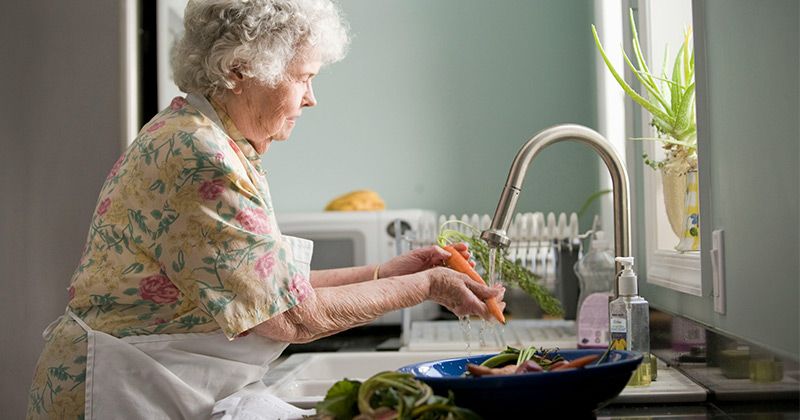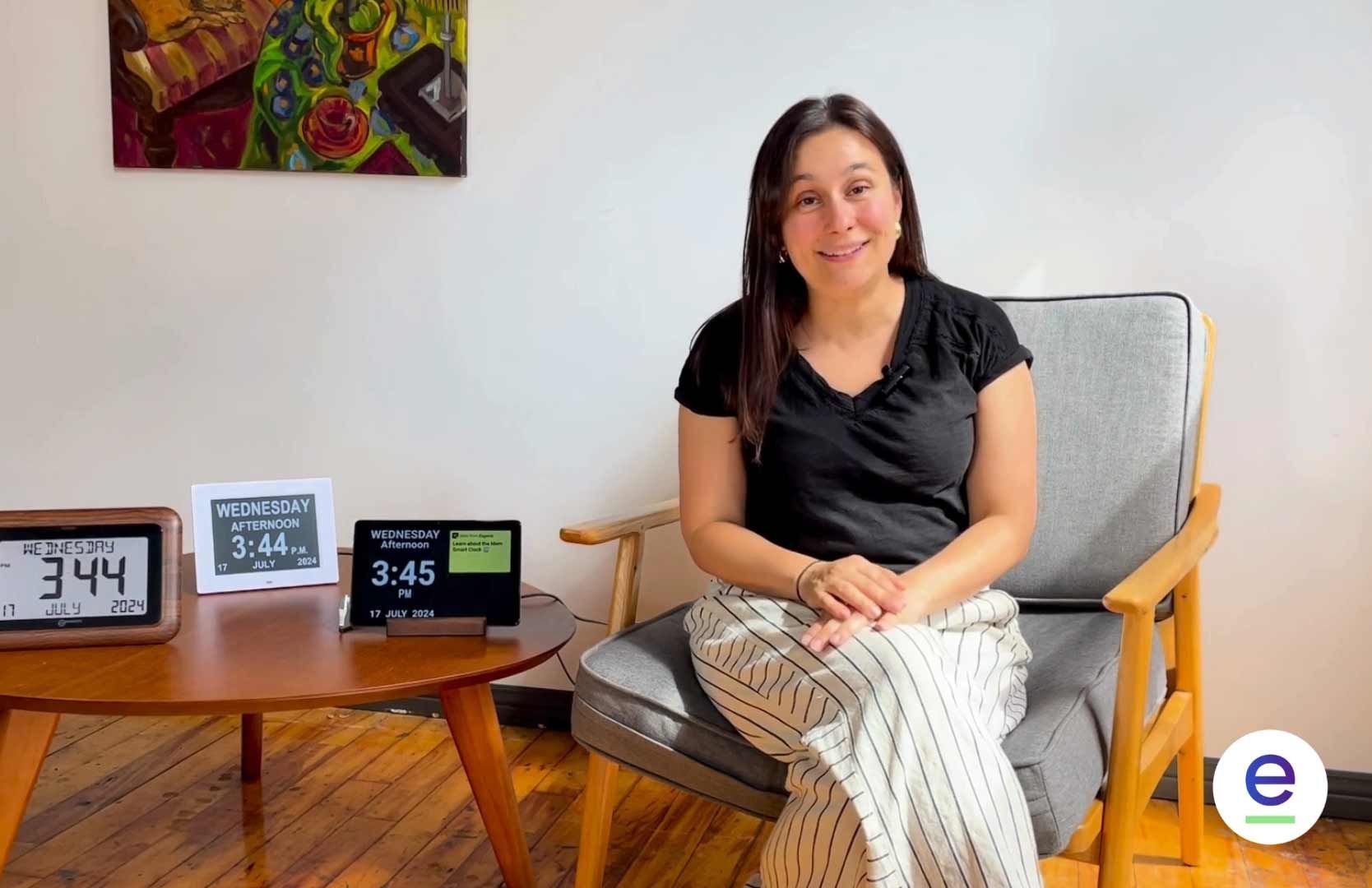This infographic offers a comprehensive overview of Activities of Daily Living (ADLs), which are essential self-care tasks crucial for maintaining independence and well-being. ADL include ba...

Understanding and Managing Sundowning Syndrome
Sundowning Syndrome is a challenging aspect of dementia care, marked by a set of behavioral changes that occur in the late afternoon or evening. This phenomenon can be distressing for both individuals living with dementia and their caregivers. This article explores the nature of Sundowning Syndrome, identifies its potential triggers, and offers practical strategies and product recommendations for effective management.
What is Sundowning Syndrome?
Sundowning Syndrome refers to a range of symptoms, including increased confusion, agitation, and mood swings, that typically occur later in the day. These symptoms are often more pronounced in individuals with moderate to severe dementia. Understanding these symptoms is vital for developing effective management strategies and providing compassionate care.
Symptoms of Sundowning Syndrome
Common symptoms include:
- Psychomotor Agitation: Increased restlessness, pacing, or wandering.
- Cognitive Decline: Heightened confusion, disorientation, and difficulty with language.
- Emotional Disturbances: Mood swings, including irritability, sadness, or anger.
- Sleep Disruptions: Changes in sleep patterns, such as difficulty falling asleep or frequent awakenings.
- Perceptual Changes: Hallucinations or delusions, which can be distressing for the individual and caregivers.
Identifying Triggers of Sundowning Syndrome
Understanding the potential triggers of Sundowning Syndrome can help in managing its effects. Common triggers include:
- End-of-Day Fatigue: Physical and mental fatigue can exacerbate symptoms.
- Environmental Changes: Variations in the environment, such as changes in lighting or noise levels, can lead to increased confusion and agitation.
- Reduced Sensory Input: Decreased natural light can heighten disorientation and anxiety.
- Disrupted Sleep-Wake Cycle: Changes in the circadian rhythm can lead to increased symptoms in the evening.
- Progression of Dementia: As dementia progresses, symptoms of sundowning can become more pronounced.
Strategies for Managing Sundowning Syndrome
While medications such as antipsychotics, antidepressants, and melatonin may help alleviate symptoms, there is no cure for Sundowning Syndrome through pharmaceutical means alone. Effective management requires a comprehensive approach, focusing on understanding and addressing the triggers of symptoms. Tailoring strategies to the individual's specific needs and circumstances can significantly lessen the impact. Here are some helpful strategies:
Environmental Adjustments
- Optimize Lighting: Increase lighting during the evening to help reduce confusion. Using soft, consistent lighting can help create a calming atmosphere.
- Minimize Noise and Distractions: Reducing unnecessary noise and maintaining a quiet, peaceful environment can help soothe agitation.
Routine and Structure
- Maintain a Consistent Routine: Establishing a regular daily schedule can provide a sense of stability and predictability, which can be reassuring for individuals with dementia.
- Plan Calm Activities: Engage in soothing activities during the late afternoon and evening, such as listening to calming music, reading, or gentle exercises.
Personalized Care Strategies
- Use Familiar Objects: Surrounding the individual with familiar items, such as favorite photos or comforting objects, can provide a sense of security and reduce anxiety.
- Monitor and Adapt: Keeping a detailed journal to track symptoms and potential triggers can help caregivers and healthcare professionals identify patterns and adjust care plans accordingly.
Nutrition and Hydration
- Encourage Balanced Meals: Ensuring that the individual has balanced meals throughout the day can help maintain energy levels and prevent fatigue.
- Monitor Fluid Intake: Adequate hydration is essential for overall health and can help reduce confusion and agitation.
Helpful Products for Sundowning Syndrome
Several products can aid in managing symptoms:
- Light Therapy Lamps: Light therapy lamps can be beneficial in regulating the sleep-wake cycle, which is often disrupted in individuals with dementia. These lamps provide bright, natural light that helps reduce confusion and agitation caused by low ambient lighting in the evening.
- Weighted Blankets and Sensory Items: Weighted blankets provide gentle pressure that can have a calming effect on the body. They can help individuals feel more secure and reduce anxiety, which is especially beneficial during times of increased agitation in the evening.

- Soothing Music and White Noise Machines: Music and white noise machines can create a calming atmosphere, helping to reduce anxiety and agitation. Playing soothing music or nature sounds can help ease restlessness and provide a relaxing environment.
- Clocks with Date and Time Displays: Clocks that clearly display the time, date, and day of the week can help reduce confusion and disorientation, which are common during sundowning episodes. These clocks are particularly useful for individuals who have difficulty distinguishing between day and night.
- Activity and Therapy Tools: Engaging in therapeutic activities such as puzzles, sensory mats or sleeves, or fidget toys can help redirect focus and reduce agitation. These tools provide mental stimulation and a constructive way to channel energy.
- Monitoring and Alert Systems: For safety, especially during episodes of wandering, monitoring systems can alert caregivers to movement in certain areas of the home. These systems provide peace of mind and ensure the safety of individuals living with dementia.
- Calming Visual Aids and Decor: Using familiar and comforting decor, such as family photos or favorite colors, can help create a sense of familiarity and security. Visual cues can also assist in navigating the environment, reducing confusion.
Integrating these products into a care plan can significantly improve the quality of life for individuals experiencing Sundowning Syndrome. It's important to consult with healthcare professionals to tailor solutions to the specific needs of the individual.
Conclusion
Managing Sundowning Syndrome is important for improving the quality of life for individuals living with dementia and their caregivers. By understanding the symptoms and triggers, implementing tailored care strategies, and utilizing helpful products, caregivers can mitigate the impact of this syndrome. Keeping open communication with healthcare professionals and adjusting care approaches as needed can help address the evolving needs of individuals with dementia. Engaging with caregiver support networks and sharing experiences may also offer valuable insights and emotional support.
Additionally, exploring a range of products designed to aid dementia care can enhance the effectiveness of care strategies and ensure a safer and more comfortable environment for individuals experiencing Sundowning Syndrome.



